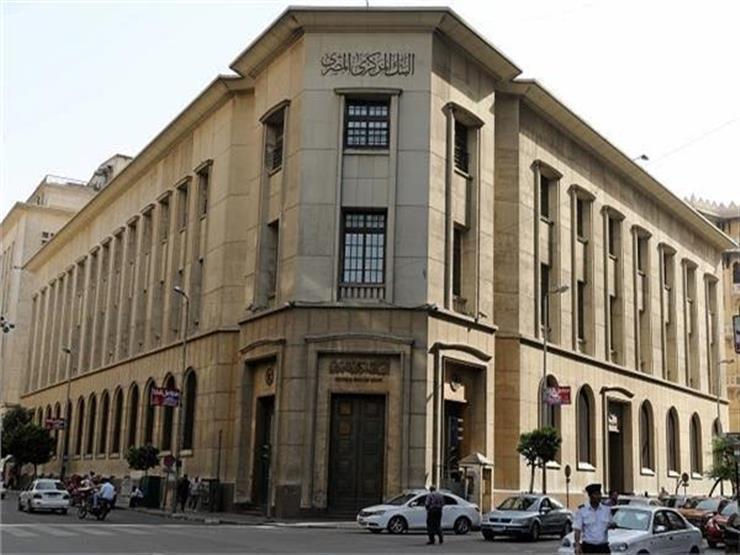Posted on: Saturday 24 September 2022 – 20:34 | Last update: Saturday 24 September 2022 – 20:34
Reduce the money supply without the need to raise interest and bear costs
The compulsory reserve increase takes effect in the first week of October
Last week’s decisions to facilitate imports and foreign currencies came in response to the market
Well-informed bank sources told “Maal and Business – Al-Shorouk” that the Central Bank’s decision to increase banks’ mandatory cash reserve to 18% instead of 14% last Thursday helps control inflation without the need. to raise the interest rate and limit the money supply without incurring the cost of those funds.
He added that the large money supply is a major cause of inflation and that reducing it is the best tool to fight inflation. And that indirect control of the total money supply has been in demand for a long time.
The Monetary Policy Committee of the Egyptian Central Bank decided, during its meeting last Thursday, led by Governor Hassan Abdullah, to maintain the interest rate on deposits and overnight loans for the third consecutive time and the fourth this year.
The price of the main operation of the Central Bank stabilized at the level of 11.25%, 12.25% and 11.25%, respectively, and the credit and discount rate remained at the level of 11.75% .
“Increasing the percentage of cash reserves that banks undertake to keep with them, to 18% instead of 14%, helps to tighten the monetary policy pursued by the Central Bank.”
He added that there are many financial instruments other than the interest rate that help improve market security and it is a mistake to focus on the interest rate only in monetary policy work.
“Straightening the market path and listening to all sides, which is what the monetary policy maker is working on,” the sources added.
A few days ago, data from the Central Bank of Egypt revealed that for the sixth time in a month £ 100 billion of liquidity was withdrawn, through open deposits with fixed-income offers, in conjunction with the rise in the price of the dollar. against the pound.
The sources explained that withdrawing cash would limit rising inflation rates by reducing the money supply, and therefore limiting banks’ ability to lend, indicating that when cash liquidity increases, interest rates on loans go down. at the lowest possible percentage, which activates the cycle of the economy and industry.
Sources indicated that limiting lending would control inflation rates, which is one of the means of monetary policy to reduce inflation rates.
The Central Bank’s decision to increase the compulsory reserve in banks from 14% to 18% is expected to come into effect in the first week of next October.
The Central Bank stated in a circular that the decision is effective from the reserve ratio which runs from 4 to 17 October 2022 on the average balances that make up the denominator of the ratio from 6 to 19 September 2022.
Required reserve is a percentage of total customer deposits with banks, both in local and foreign currency, that the central bank obliges banks to deposit with it without obtaining a return in exchange for that deposit, in order to ensure that the custodian bank is not exposed to reserve risks.
The reserve is a mechanism to tighten the conditions that would lead the economy to single rates of inflation, and the reserve requirement is a tool that is used within very narrow limits and is not used much, explaining that the last time we resorted to ‘increase in the mandatory reserve was in 2017, which confirms that this mechanism is not significantly used.
The required reserve ratio is calculated on the basis of the deposits owned by your deposit with the Central Bank.
And there is great liquidity in the market, which is the result of several factors, first of all the large deposits in the banking sector and their continued increase, which has exceeded £ 6.5 trillion, compared to around £ 5.6 trillion. trillion pounds at the end of December 2021. It came in response to the needs of the market and what producers need funding to restore the business that was discontinued following the March decisions on documentary credits.
The Central Bank last week allowed to accept the proceeds of cash deposits of companies in foreign currency deriving from export transactions with neighboring countries (Libya – Syria – Sudan – Palestine – Iraq – Yemen), and to use them in the conduct of import operations, taking into account the proportion of the value of the deposits with the size and nature of the customer’s usual activity and the value of the documents indicating the export process.
The Central Bank has also agreed to use the parent company’s foreign currency balances at local banks resulting from an activity to implement the import process, provided that they are sold to the bank and the bank resells them without a trading margin.
The Central stressed that this is allowed by sister companies and affiliates without referring to the Central Bank, with the application of the same mechanism of sale to the bank and resale without a trading margin.
The Central Bank has also agreed to the parent company or overseas subsidiary to provide a foreign currency loan to the subsidiary in Egypt for periods of one to five years and to use the loan to carry out an import transaction, to provided that the funding period is not less than one year.
–


